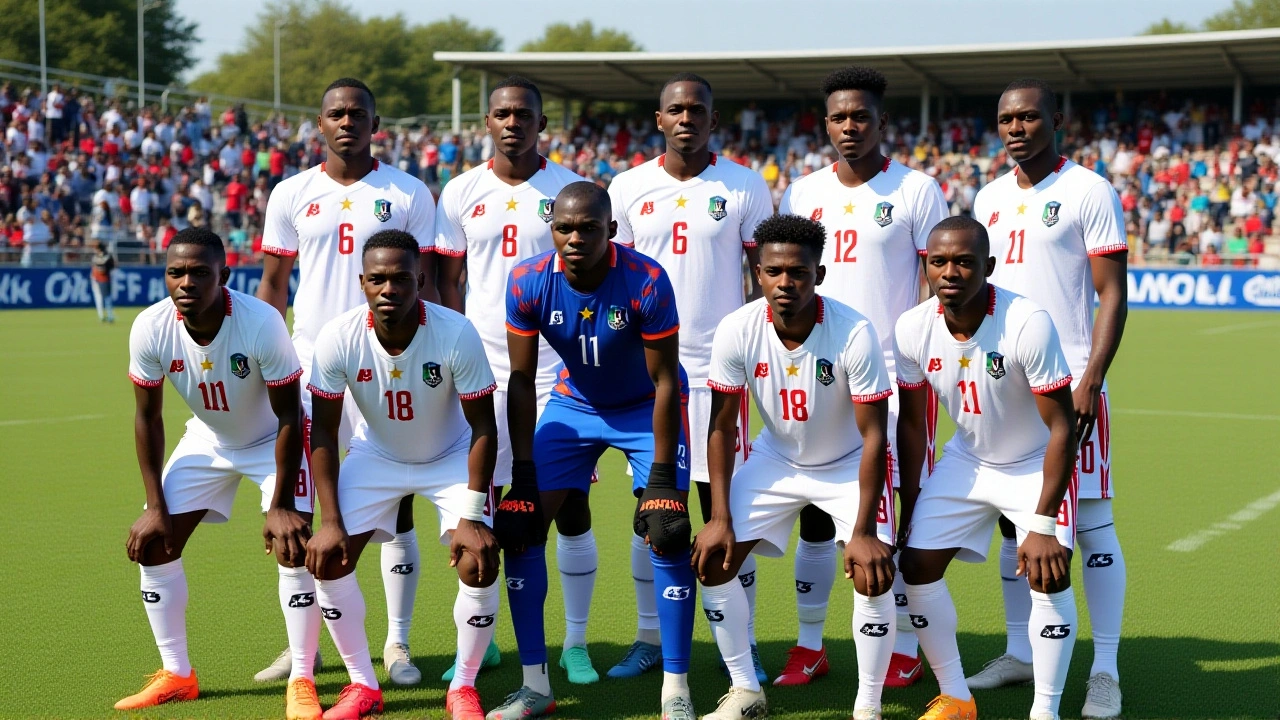When talking about Juba Stadium, the primary multi‑purpose arena in Juba, South Sudan, opened in 2012 and used for football, basketball and large public gatherings. Also known as Juba National Stadium, it is the home ground for the South Sudan national football team and often hosts regional tournaments. The venue seats around 12,000 fans, offers a grass pitch that meets FIFA standards, and has a modern locker‑room complex that attracts international matches.
The arena gained continental attention when it staged games for the AfroBasket, the premier African basketball championship held every four years, featuring national teams from across the continent. In the latest edition, Senegal edged out South Sudan 78‑65 in Luanda, but several group‑stage matches were played in Juba, giving local fans a front‑row seat to high‑level basketball. This link between the stadium and AfroBasket demonstrates that Juba Stadium not only supports football but also serves as a key venue for major basketball events, boosting the sport’s profile in the region.
Beyond AfroBasket, the stadium’s flexible design allows it to adapt to different sports formats. Its hardwood floor can be swapped for a regulated basketball court within a day, and the lighting system meets international broadcast standards, ensuring that games are TV‑ready. These capabilities attract tournament organizers looking for reliable infrastructure in East Africa.
Switching gears, Juba Stadium also fits into the broader landscape of club competitions like the Carabao Cup, England’s knockout cup for professional football clubs, often featuring surprise matchups and lower‑league teams. While the Carabao Cup is based in the UK, its format of rotating venues mirrors how Juba Stadium hosts travelling teams—from Newcastle United’s interest in African friendlies to local clubs trying to qualify for continental cups. The stadium’s ability to host such fixtures shows that the venue meets the logistical standards required for high‑stakes knockout games.
Another related entity worth noting is South Sudan football, the national team's competitive efforts in FIFA World Cup qualifiers, African Nations Cup and regional tournaments. Juba Stadium acts as the team’s main training ground and matchday stage, influencing player development and fan engagement. When the national side faces rivals like Kenya or Ethiopia, the stadium’s atmosphere—charged by local chants and vibrant flags—creates a home‑field advantage that can tilt tight games.
All these connections form a web of relationships: Juba Stadium encompasses football and basketball events; AfroBasket influences the stadium’s reputation in basketball; the Carabao Cup showcases the stadium’s readiness for knockout‑style tournaments; South Sudan football relies on the venue for growth. Together they illustrate why the stadium matters not just locally but across the African sports scene.
Below you’ll find a curated collection of recent stories that touch on these themes—match reports, tournament updates, player spotlights and stadium‑related developments. Whether you’re a fan of the national team, a follower of AfroBasket drama, or simply curious about how Juba Stadium fits into the wider world of sports, the articles ahead will give you fresh insights and up‑to‑date information.
Posted by
Siseko Tapile
19 Comments

South Sudan and Togo ended their World Cup qualifying hopes with a 0-0 draw at Juba Stadium, leaving both teams out of the 2026 tournament and sparking discussions on African football's future.
read more